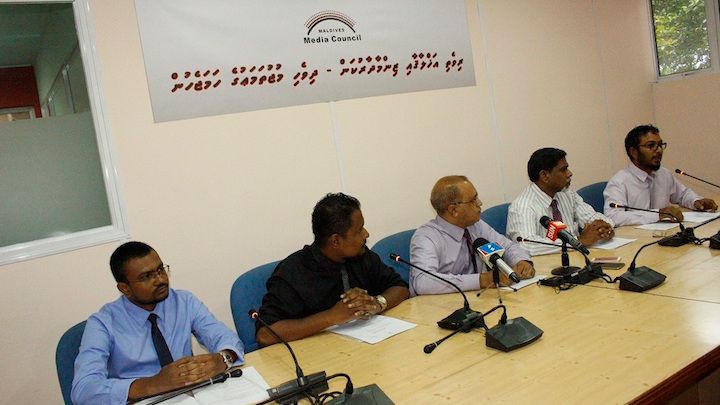Regulator wants ‘broadest possible’ journalism under new rules
The media regulator wants journalists to practice their profession “as broadly as possible” within new legal restrictions.

06 May 2018, 09:00
The president of the print and online media regulator has called for journalists to practice their profession “as broadly as possible” within new legal restrictions, even as international organisations criticised authorities for cracking down on the press.
The Maldives Media Council has done “important work” towards establishing a conducive environment “within the legal framework that was in force when the [council] began the current term“, Abdul Mueed Hassan said in his message on World Press Freedom Day last week.
“[This was done] in order to remove the perception that the law is an obstacle to the work of journalists and to make the law a warrant that gives power and strength to journalism,” he said last Thursday.
Mueed’s statement came days after Reporters without Borders (RSF) said the 2016 anti-defamation law was being used to intimidate and force the shut down of media outlets.
Become a member
Get full access to our archive and personalise your experience.
Already a member?
Discussion
No comments yet. Be the first to share your thoughts!
No comments yet. Be the first to join the conversation!
Join the Conversation
Sign in to share your thoughts under an alias and take part in the discussion. Independent journalism thrives on open, respectful debate — your voice matters.




